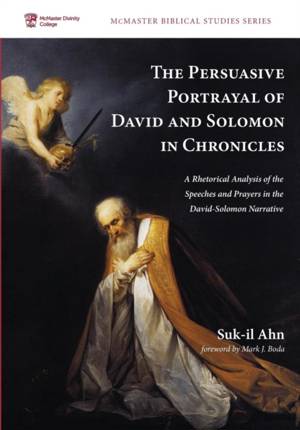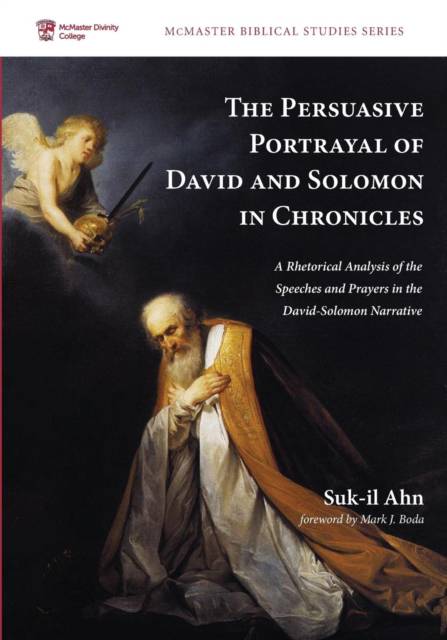
Bedankt voor het vertrouwen het afgelopen jaar! Om jou te bedanken bieden we GRATIS verzending (in België) aan op alles gedurende de hele maand januari.
- Afhalen na 1 uur in een winkel met voorraad
- In januari gratis thuislevering in België
- Ruim aanbod met 7 miljoen producten
Bedankt voor het vertrouwen het afgelopen jaar! Om jou te bedanken bieden we GRATIS verzending (in België) aan op alles gedurende de hele maand januari.
- Afhalen na 1 uur in een winkel met voorraad
- In januari gratis thuislevering in België
- Ruim aanbod met 7 miljoen producten
Zoeken
The Persuasive Portrayal of David and Solomon in Chronicles
A Rhetorical Analysis of the Speeches and Prayers in the David-Solomon Narrative
Suk-Il Ahn
€ 58,45
+ 116 punten
Uitvoering
Omschrijving
This study examines the speeches and prayers in the David-Solomon narrative in Chronicles and seeks to demonstrate that the Chronicler's portrayal of David and Solomon attempts to establish the Yehudite community's identity. Is the covenantal relationship still valid in the Persian period? The author asserts that as a commitment to YHWH involving the worship of YHWH through the Jerusalem temple, the covenantal relationship between YHWH and Israel continues even into the Persian period. This study employs Kennedy's rhetorical method with the new categories of the narrative situation and the Chronicler's situation being used to further delineate his concept of the narrative situation. The Chronicler's portrayal of David and Solomon through speeches and prayers serves to persuade his audience of the significance of the Jerusalem temple, reformulating the Yehudite community identity as a cultic community in the Persian period.
Specificaties
Betrokkenen
- Auteur(s):
- Uitgeverij:
Inhoud
- Aantal bladzijden:
- 334
- Taal:
- Engels
- Reeks:
- Reeksnummer:
- nr. 3
Eigenschappen
- Productcode (EAN):
- 9781532604928
- Verschijningsdatum:
- 1/02/2018
- Uitvoering:
- Paperback
- Formaat:
- Trade paperback (VS)
- Afmetingen:
- 178 mm x 251 mm
- Gewicht:
- 589 g

Alleen bij Standaard Boekhandel
+ 116 punten op je klantenkaart van Standaard Boekhandel
Beoordelingen
We publiceren alleen reviews die voldoen aan de voorwaarden voor reviews. Bekijk onze voorwaarden voor reviews.









